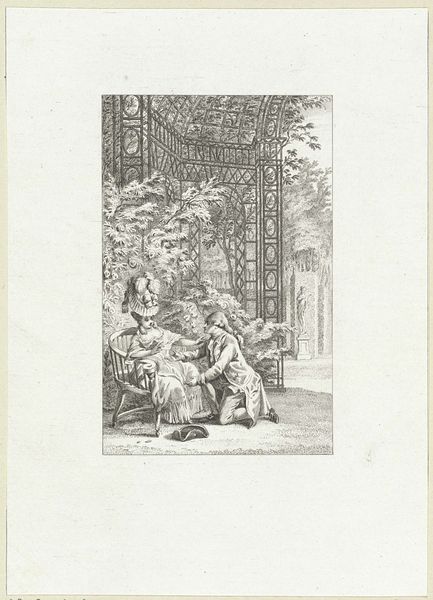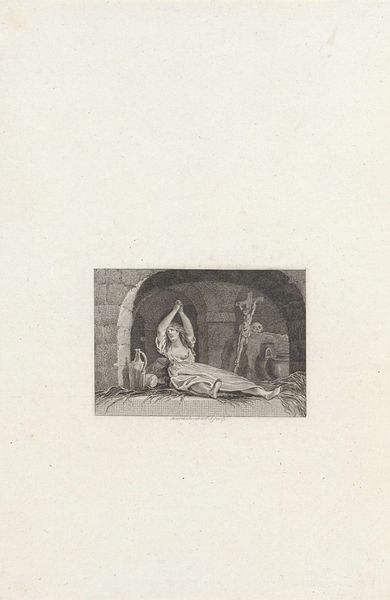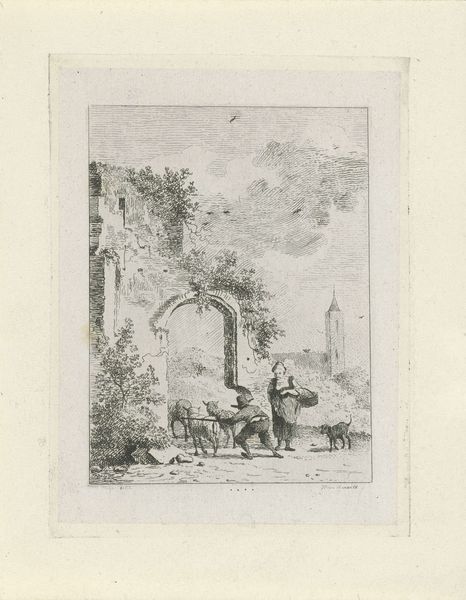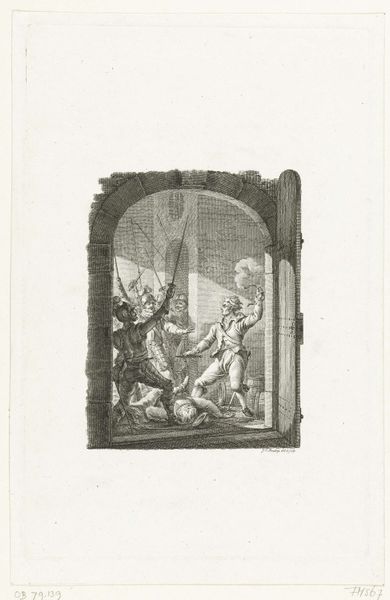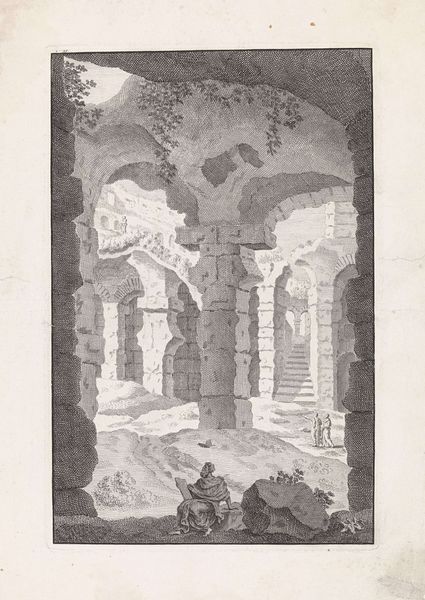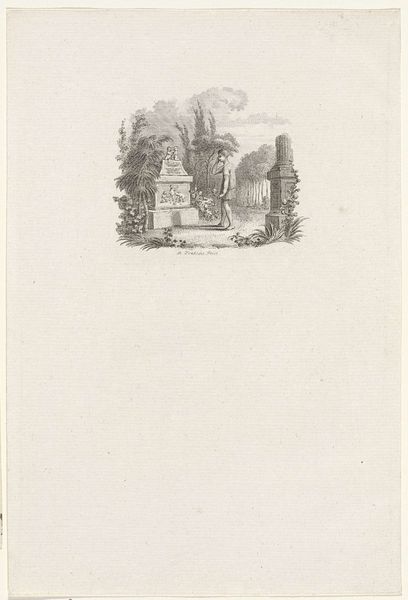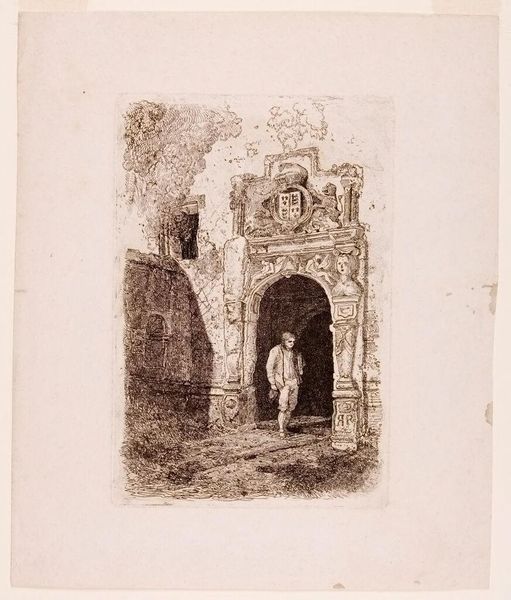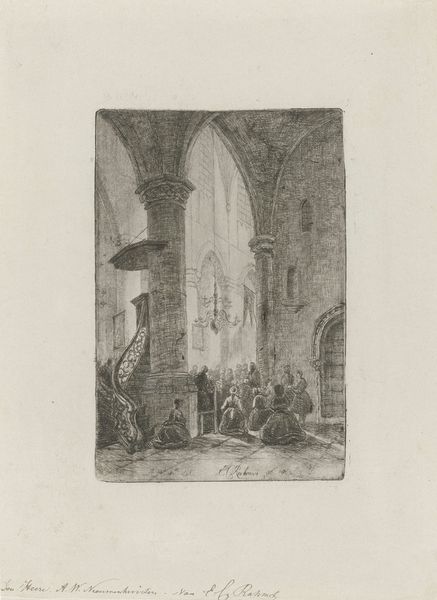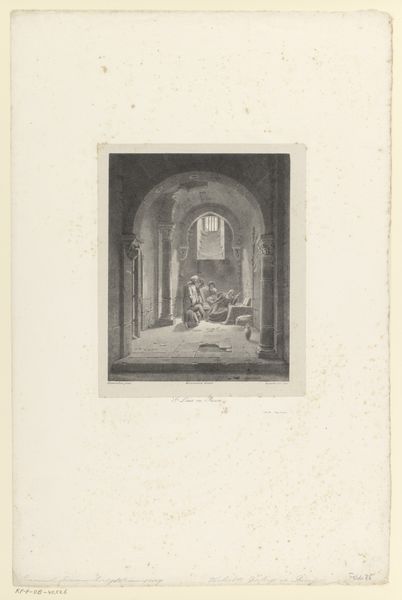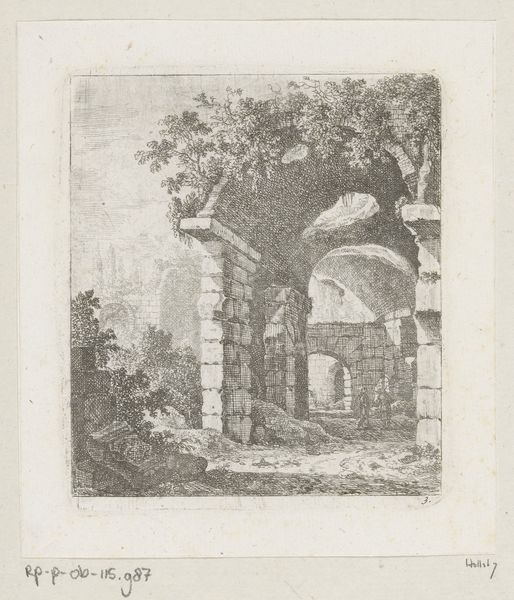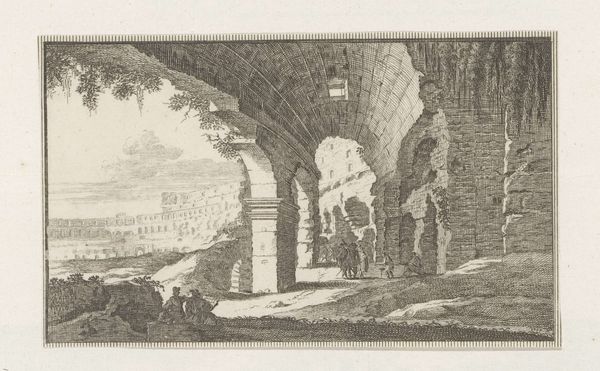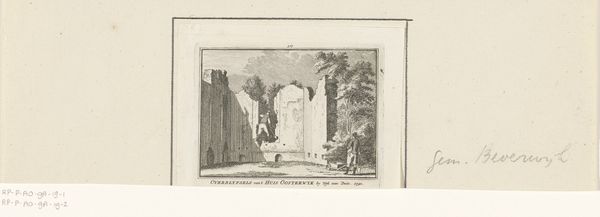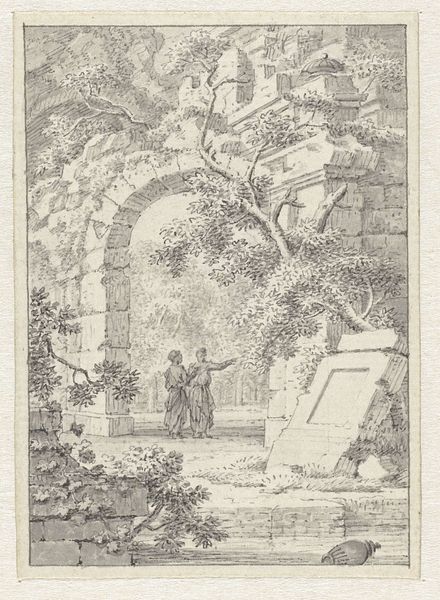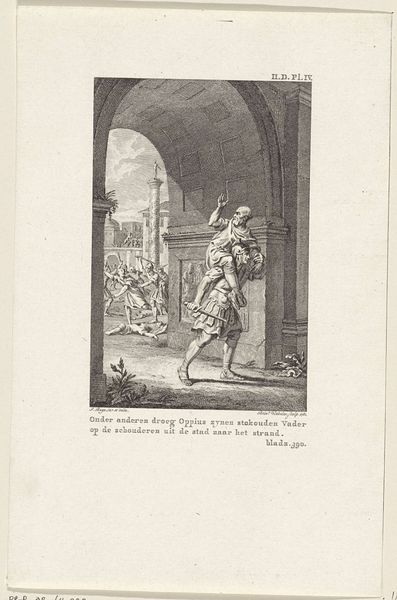
drawing, print, paper, engraving
#
drawing
#
neoclacissism
# print
#
landscape
#
classical-realism
#
figuration
#
paper
#
line
#
genre-painting
#
history-painting
#
academic-art
#
engraving
Dimensions: height 255 mm, width 159 mm
Copyright: Rijks Museum: Open Domain
Reinier Vinkeles made this etching sometime before his death in 1816. He employed a printmaking technique that, at the time, was crucial to the circulation of images and ideas. Etching involves coating a metal plate with a waxy, acid-resistant layer, then drawing through the layer to expose the metal. When acid is applied, it bites into the exposed lines, creating grooves that hold ink. The plate is then printed, transferring the image to paper. Consider the labor involved: from preparing the metal plate and applying the waxy ground, to the careful drawing and the controlled application of acid. This hands-on process results in a print with a distinct graphic quality. The stark contrast and precise lines give the scene a sense of clarity and order. By understanding the making of this print, we recognize the skill and effort required, and the social context in which images were disseminated. This etching transcends mere representation, becoming a testament to both artistic vision and the power of reproducible media.
Comments
No comments
Be the first to comment and join the conversation on the ultimate creative platform.
